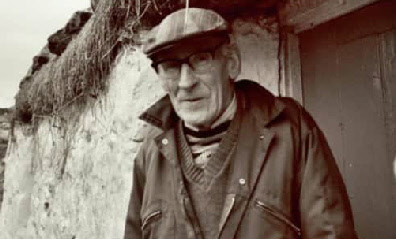An archive of Gaelic audio recordings of the traditions of islanders, crofters and fishermen are being released online by the University of Glasgow
It is part of the university’s continued drive to make the riches of traditional
Gaelic speech more accessible to speakers, non-
The audio tapes range from fishing terminology to songs and poems as well as stories about everything from courting to traditional ailment cures to fairy stories and premonitions.
Many of those featured in the audio archive have since died and it will be the first time their families and friends have heard the recordings.
The move comes as the Digital Archive of Scottish Gaelic (DASG), an online repository of digitised texts and lexical resources for the language, celebrates its 10th anniversary.
It also heralds a new direction for DASG of focusing more on the spoken word to include oral traditions of storytelling, folklore, songs and poetry.
It is also hoped that the audio archive will help to raise interest among new audiences in learning more about Scottish Gaelic and its oral traditions.
A key element is also to return traditions and stories to those communities from whom that were freely and generously given, thus ensuring they are preserved for future generations.
Professor Rob Ó Maolalaigh, professor of Gaelic and the director of DASG, said: “Our archive is a living memory connecting us directly through an oral history of storytelling and song to the traditional Gàidhealtachd of previous generations.
“It is a reminder where we have come from and celebrates an important part of Scotland’s dùthchas and heritage. All three of Scotland’s indigenous languages – English, Gaelic and Scots are contained within the archive.
“Today the Gaelic language is very much part of modern Scotland. From the names of cities and towns we live in which have come from Gaelic like Kilmarnock, Stirling, and Inverness to words like loch, glen, bard, whisky and clan, the language helps put Scotland into context. We are delighted to make this audio resource freely available.”
In total, some 42 audio files are being published. Nine are from the newly launched Cluas ri Claisneachd Archive, recorded in Campbeltown in Scotland and also Cape Breton, Nova Scotia and Canada, which will be fully transcribed and searchable with detailed contents.
These recordings were mostly made during the collection phase for the Historical
Dictionary of Scottish Gaelic Project (HDSG) in the 1970s. It also includes other
reel-
A further 33 audio files are being published from the Mòthan Archive, all gathered in North and South Uist, Scalpay, Harris, Barra, Berneray and Benbecula by American Tracy Chipman during the 1990s and early 2000s. These were recorded in English and Gaelic and will be fully transcribed or subtitled in due course.
DASG traced the family of Donald MacDonald who was recorded in Daliburgh, South Uist.
Mary Ann Campbell, a great niece of Mr MacDonald, said: “It is lovely and moving to hear Dòmhnall’s voice again. He was always very welcoming and looked forward to his many visitors, they used to come from all over the world.
“He was a kind, softly spoken and modest man and never boasted about any of his work.
“His work was often published in the local paper. We are fortunate as a family that we now have his book to look at some of his bàrdachd or poetry, it was just unfortunate that is was published after his death.
“He always spoke Gàidhlig to us and yes we speak Gàidhlig as a family.”
Gaelic archive goes online
4 September 2018

Domhnall MacDonald of Daliburgh features in the archive